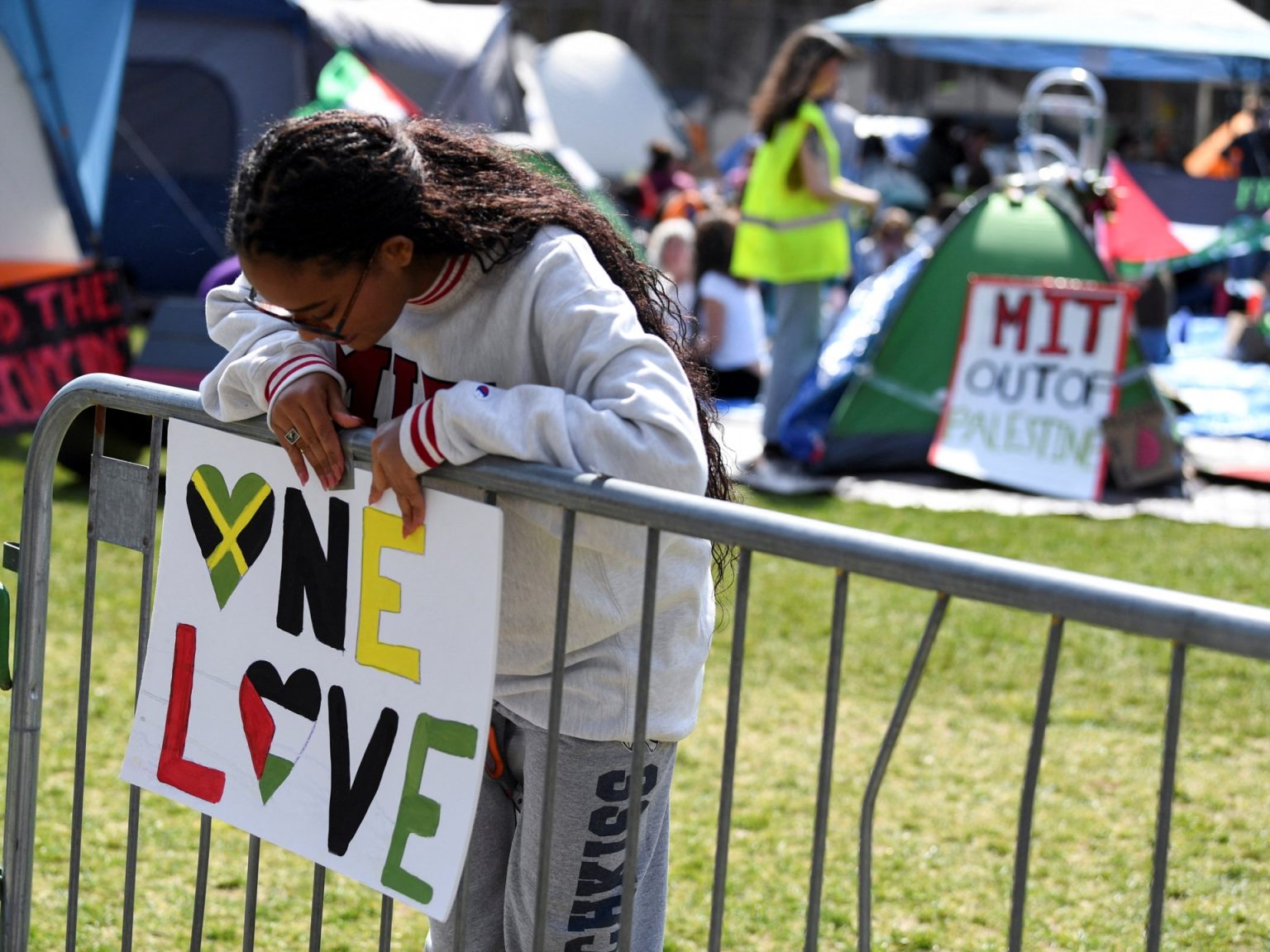The presidential campaign of Kamala Harris has sparked tensions within the anti-genocide movement, particularly among Palestinian activists who feel disillusioned by her lack of strong stance on the genocide in Gaza. The debate has intensified on social media, with TikTok creators Maya Abdullah and Tori Grier igniting a heated discussion about racism and community interests. Grier’s supporters argue for Black community support for Harris to avoid increased violence and discrimination under another Trump administration, while Abdullah’s supporters contend that Palestinian Americans should not be pressured to vote for someone complicit in the genocide of their relatives in Palestine.
The history of Black-Palestinian solidarity dates back to the recognition that oppression manifests in similar ways for Black and brown people, through white supremacy, structural racism, and imperialism. Throughout the civil rights movement, leaders like Malcolm X and Angela Davis consistently spoke up about the colonisation and occupation of Palestine. The solidarity between these communities was further solidified in the 1960s through groups like SNCC and the Black Panther Party, who highlighted the need for anticolonial alliances against systems of oppression.
In recent years, the pro-Palestinian movement has aligned itself with the Black Lives Matter movement, recognizing the parallels between their struggles against racism and oppression. Following Israel’s genocidal war on Gaza, key Black organisations have called for a ceasefire and halted weapons shipments to Israel. The unity between Black, Palestinian, and Jewish anti-Zionist groups in fighting against all forms of racism has been evident in various advocacy movements and progressive initiatives.
There have been concerted efforts by Israeli and American Zionist interests to undermine Black-Palestinian solidarity, viewing it as a threat to their divisive propaganda. AIPAC and other Zionist groups have targeted politicians like Ilhan Omar and poured money into campaigns to unseat representatives advocating for Gaza and Palestine. A division between the Black and Palestinian communities would serve the interests of Israel and its supporters, perpetuating oppressive systems and hindering the global solidarity against genocide.
Critics of Kamala Harris question her commitment to progressive and anticolonial agendas, viewing her as representing the liberal bourgeois class that undermines true systemic change. While some view her as the “lesser evil” within the American political landscape, there are concerns that she may continue policies that perpetuate racism, uphold militarization, and benefit the wealthy. The reluctance to include a Palestinian voice at the Democratic National Convention and Harris’s narrative of both-sidesism further raise doubts about her dedication to challenging oppressive structures.
The unification of Black and Palestinian communities against genocidal violence in Gaza is crucial in resisting global oppression fueled by white supremacist and capitalist-imperial interests. The shared struggles against settler colonialism, state violence, and racist capitalist oppression require unwavering solidarity and principled grassroots movements. True liberation in the US and Palestine can only be achieved through a unified antiracist and anticolonial movement that challenges systems of oppression on a broad scale.













